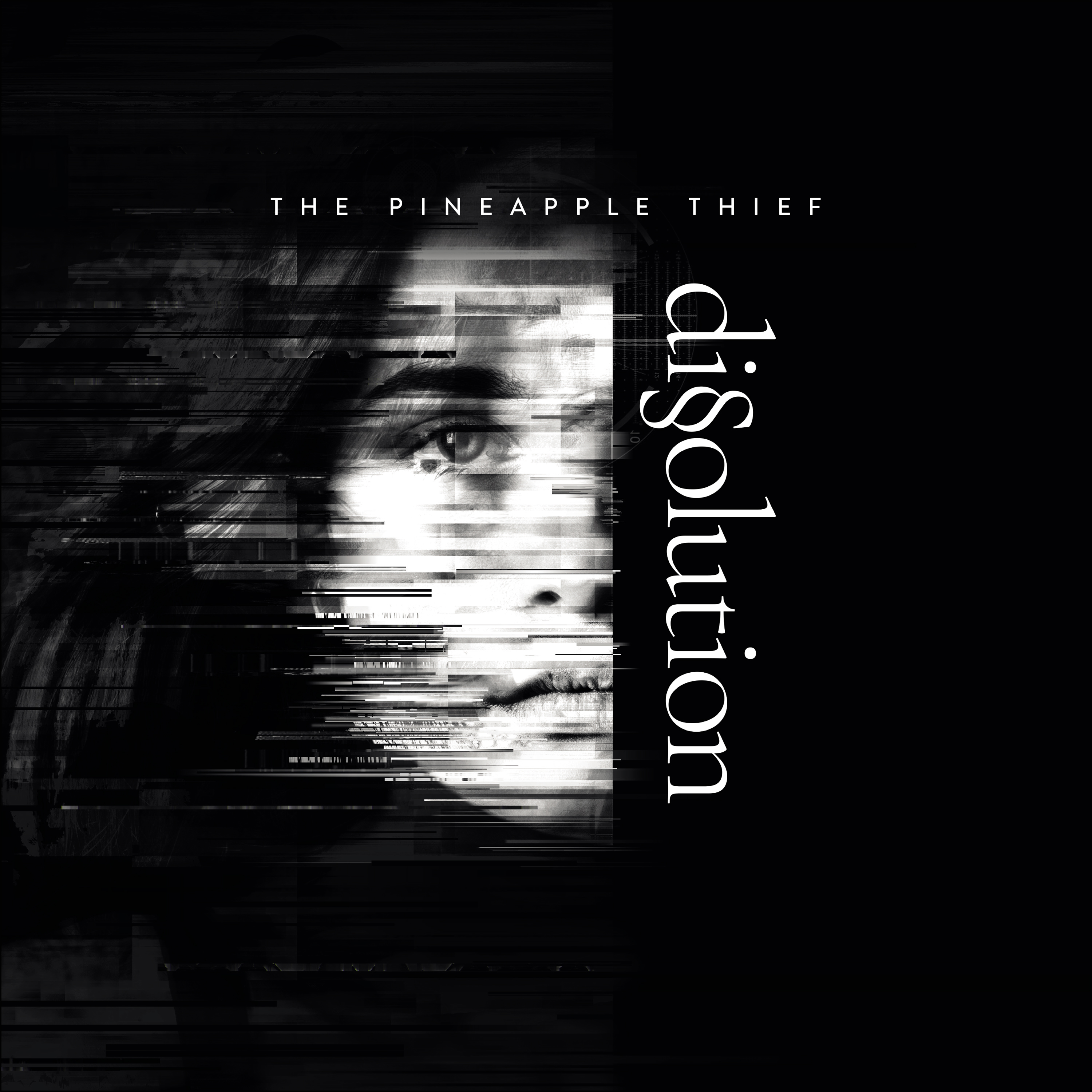ALBUM REVIEW: Dissolusion – The Pineapple Thief
Belonging to a truly vast alumni of acclaimed progressive rock outfits, British quartet THE PINEAPPLE THIEF, notwithstanding their remarkably expansive back-catalogue, surely stand as one of the most underappreciated acts on the circuit. Boasting a discography of no less than eleven full-length studio albums, in addition to a plethora of EPs and singles, all the while showcasing a charmingly authentic brand of art-rock, this is a band that have been taking frequent and assertive strides forward since 1999, whilst being unaccountably eclipsed by brand-name, peer acts such as DREAM THEATRE, OPETH, and A PERFECT CIRCLE. Regardless, stride forward is patently what THE PINEAPPLE THIEF are intending to do once more, as they gear up to succeed 2016’s Your Wilderness, and unleash twelfth studio attempt Dissolution, once again via renowned prog-rock label Kscope.
Whilst brandishing a considerable run-time, in addition to a balanced range of song lengths, it becomes immanently clear that Dissolution follows the trope of its several predecessors prior in adopting a far less expansive approach, the band striving to avoid spreading themselves thin with a herculean attempt akin to 2010’s 143-minute offering, 3000 Days. Whilst both approaches can certainly bear charm and allure aplenty, the former seems to make more sense in the context, this release officially marking a dozen studio albums for this band, and presumably one that they hope will break new ground for them.
With this in mind, introductory sequence Not Naming Any Names and lead single Try As I Might certainly follow suit, taking the shape of something rather more formulaic and widely accessible, but frequently coloured with flourishes of progressive brilliance. The former acts as a delicate, patient intro, consisting of soft piano melodies laying supine at the base – keyboardist Steve Kitch being given room to stretch his legs – whilst the gentle chimes of vocalist Bruce Soord saunter overhead, forming what presents as almost lullaby-esq in nature, the track ultimately fading into the ether whilst the title lyric softly iterates. The latter, whilst rather more vivid, follows a fundamentally similar pattern; a basic structure is established, and is presented as tender and reserved, each component strictly fulfilling its role in militaristic fashion, but for a series of subtle phrases, meter-changes and flourishes serving to inject a sense of extra-curricular flavour throughout. Ultimately, the song represents the antithesis of ambition, but in distinctly pleasant fashion. It neglects to rise, but equally neglects to fall, establishing a robust, unwavering spine, in addition to faint melodies that consistently meander from point to point, Soord‘s intoxicating vocals strewn atop once more. Even the guitar solo remains wholly in keeping with this thematic, each note bending in delectable synchronicity with the rhythm of the spine, completing what presents as a truly artisinal piece of work.
What we see in the opening two tracks is certainly, to an extent, representative of the overall behaviour pattern at play throughout Dissolution. Very much akin to OPETH‘s exertions on Heritage and Pale Communion, it feels as though THE PINEAPPLE THIEF have taken the time to step back and truly play to their strengths, without tarnishing the work through a sense of wanton outlandishness. This being said, it would be remiss to suggest that the record simply apes the established mechanisms of the first few songs, and fails to breach a certain formula. For instance, fourth song Uncovering Your Tracks presents an apt demonstration; whilst staying true to the notion of simple structuring, the track flirts with flavours of synth and electronic influence, in addition to a smorgasbord of tempo changes and complex percussive flourishes (courtesy of KING CRIMSON and PORCUPINE TREE drummer Gavin Harrison), in addition to a remarkably impressive (albeit abrupt) guitar solo; a fine example of a song built upon simple structure, but flavoured with some rather more obscure and enterprising elements.
At any rate, this brings us to perhaps the most overt example of Dissolusion‘s ambition: penultimate track, White Mist. At eleven minutes long, this song paints a truly magnificent picture of the extremes of this outfit’s songwriting capacity, in stark contrast to some of the record’s other tracks. Retaining a modest sense of simplicity whilst simultaneously taking a much more expansive direction, this track is really able to offer the full package, acting as a fitting headline for the record. Infectiously catchy vocal melodies remain in abundance, languidly blanketing an instrumental backbone complete with acoustic guitar sections, synths, piano, and more of guitarist David Torn‘ audacious soloing; the song’s hook lyric “you were never in control” ultimately proving somewhat paradoxical in reference to the songwriting prowess on display. This being said, what really sets this song apart is the structuring; frequently are the instruments allowed to meld together, forming a dense wall-of-sound effect, soundscapes meandering this way and that, the song assuming a new dynamic entirely as the requirement of Soord‘s vocal services is intermittently revoked, only to abruptly resume once more, catching the listener off guard. This is an approach that THE PINEAPPLE THIEF, without becoming dependent on it, flirt with sporadically throughout Dissolution, The Mist acting as the ultimate microcosm of it.
The take-home impression is that Dissolution really is remarkably well balanced. Each member’s technical proficiency and deftness in songwriting seems to be in full attendance throughout, ultimately delivering an eclectic and dynamic record, book-ended by four songs: a bardic, anticipatory intro track followed by the catchy, memorable lead single, and an eleven-minute epic followed by a neat, astute crescendo; two sides of the same coin. Based on this however, it feels necessary to identify a conceivable let-down aspect, entirely characterised by this night-and-day sense of balance. When compiling the final cut, neighbouring a two-minute interlude and an eleven-minute epic (merely an example, but surely the most poignant one) is a risky move, and from a certain perspective, it can leave the less ambitious offering with much to be desired. Unfortunately, this notion creeps in from time to time during Dissolution, albeit in the slightest of manners. At times, it seems as though the record takes on the form of a disgruntled teenager, in that it can’t figure out what it wants to be. Consequently, listeners of certain persuasions may find themselves in a predicament, wanting more of the progressiveness and less of the formula, or vice versa. This being said, as far as we’re concerned, the contrast is certainly welcomed for the most part, and ultimately contributes a great deal towards the progressive nature of this band’s style. After all, taste truly is the crux of all art forms.
All things being equal, it’s fair to say that THE PINEAPPLE THIEF have pulled off another thoroughly accomplished record, in an attempt that marks their twelfth since 1999. In a forty-minute affair where complexity meets simplicity and progressive meets conservative, generally speaking, we expect any given listener to find healthy pinches of everything they look for in music. From a more holistic perspective, however, Dissolution as a full piece, conveys as meticulously thoughtful in nature; something that should be an almost subconscious achievement for this outfit by now. In a musical world more convoluted with choice than ever before, to distinguish oneself from one’s peers can prove to be a herculean task; however, this record being what it is, perhaps now is the time for THE PINEAPPLE THIEF to assume ascendancy amongst the ranks.
Rating: 9/10

Dissolution is out now via Kscope.
Like THE PINEAPPLE THIEF on Facebook.

